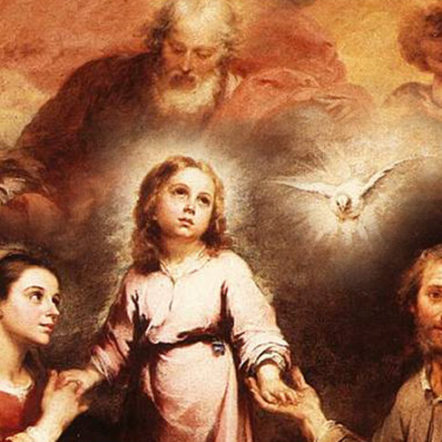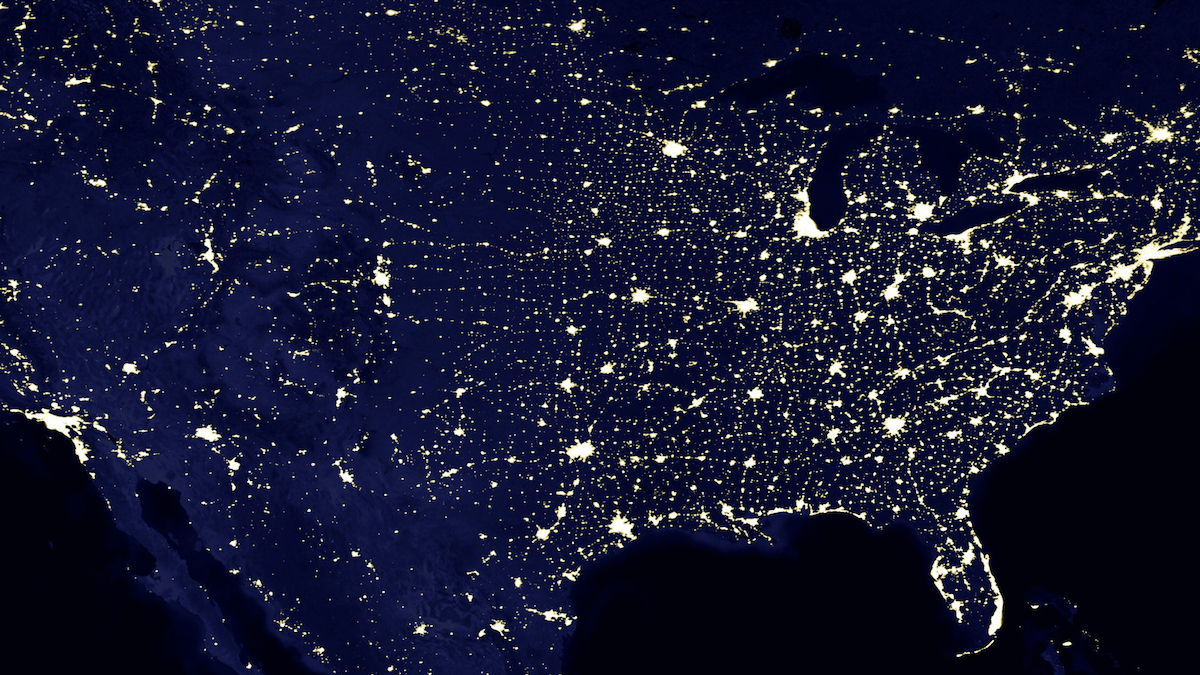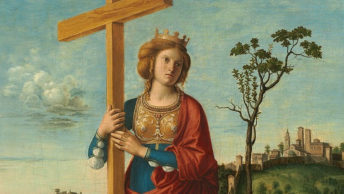When Eternal God speaks to Himself, he sings in Algebra! If God were to harbor a single stray thought, He could sketch out Newtonian Motion. If He were to author a temporal treatise, it would be written perfectly in the language of Relativity and Quantum Mechanics. When God created man, Logos uttered a single word sketching out a billion pages of DNA. If a temporal creature were to eavesdrop on a conversation between the persons of the Trinity, He would not comprehend what He had heard. Men can try to speak in the language of mathematics, a language perfectly created by God, the Father does not communicate to his Son and Spirit simply in math, it is an eternal conversation of love. But when the triune God Speaks to us, it is to share that love so He can redeem us back to Him. [1]
Christoph Schwobel takes his time in getting to his thesis and conclusion in his article on the relationship between Eternal God and His creation and the relationship between the three Eternal persons of the Trinity. But a highly structured and rigid article about such a subject seems redundant. All the books that have ever been written and that ever will be written could never contain a complete theology of such subjects.[2] The idea is to simply approach the subject lest finite minds get overwhelmed with trying to grasp an eternal God having a never-ending conversation between the three persons of the Trinity while trying to describe the Eternal’s relationship to the temporal. Schwobel approaches the topic at the conclusion of this short work, which takes the form of one line from a Psalm like sentence, to which this reviewer attempts to compete above.
While unconventional, this paragraph encompasses the subject and the thesis of Schwobel’s article. Stated more conventionally, the paper communicates a theological theory in miniature concerning God’s interaction of the eternal to the temporal and description of the Divine eternal communication of the three persons of the Trinity.
Summary of Contents
The Old Testament writers of Sacred Scripture sometimes wrote of God as if he were temporal. God acted, reacted, and seemed to change.[3] God seemed to change his mind[4] and have regret,[5] both distinctly human and temporal emotions. In contrast to the Old Testament writers from deep antiquity, Saint John in the New Testament wrote of Jesus Christ as being eternal, Logos, the Creator, who outside of time, created everything that came to exist including space and time.[6] At first glance, the distinction between some of the Old Testament writers and the New Testament writers seems an apparent contradiction, but to the ancient authors of the Bible what they wrote made sense to a temporal creature. The Old Testament God seems sometimes mysterious and almost human. The New Testament God is fleshed out, so to speak.
This contrast between the “Old Testament God” and the “New Testament God” is in full focus in Section One of Schwobel’s expression of God’s eternal nature, Between Timelessness and God’s Divine Temporality. From pre-antiquity, ordinary men did not think of concepts such as space and time. Men existed, hunted, planted, lived, and worshiped. Like men, God existed. But God and humanity never interacted at an intimate level to the extent that Moses did. Moses had the benefit of meeting God[7], and his first Genesis account of creation reflects a proto-Christian God who is eternal, but most people in the Bible were not on such familiar terms with the Creator and concepts such as space and time were still to be. The New Testament writers had the benefit of the Greek philosophers who conceived of a proto-Christian monotheistic God, who was eternal as opposed to temporal. Saint John in his development of the Logos narrative in John Chapter 1 had the benefit of having a dialogue with the Greek philosophical community.[8] Obviously and much more important, he also knew God incarnate having spoke to Jesus Christ face to face.
Schwobel also expounds on how God seems to interact with time in Section 2, The Trinitarian Modes of God’s Relationship to Time. Intersecting with Saint Thomas Aquinas that eternity is nothing other than God Himself[9] to Karl Barth’s formulation that time is not the opposite of eternity to the radical view of Paul Helm that “no temporal concept can be applied to God, not even the simultaneity of God to the events in God’s creation.”[10] The problem with trying to describe eternity is similar to the problem that the Old Testament writers had when trying to narrate God’s actions and describe his nature. To understand eternity we must look to Holy Scriptures and the Church Fathers. But scriptural authors and the Holy Fathers’ knowledge of eternity was limited. Eternity could be anything except the temporal.
In his third section, The Eternity of the Triune God: A Conversation of Love, Schwobel describes a theoretical conversation between the three persons of the Trinity and lays out the foundation for that conversation with a development of a theology of divine love. In this section, Schwobel understand that in ten pages, a theologian cannot lay out a theology of the relationship of the three persons of the eternal God, let alone sketch out even an incomplete theology of God’s relationship to the temporal.[11] The relationship between the three persons of the Trinity is an eternal relationship of love. Aquinas asserts and Schwobel agrees that to approach a theology of eternal relationship between the three trinitarian persons, nothing less than eternity is required to make a such a statement. Yet we can speculate. How can we define eternity?
Critical Interaction
If an attorney were to define eternity to a jury, he or she would reach for a familiar yet authoritative treatise on the subject. One such treatise authored by the mid twentieth Century theologian Ludwig Ott defines eternity thus: “Eternity is a duration without beginning and without end, without sooner and later, a “permanent now” (Nunc stans). The essence of eternity is the absolute lack of succession.[12]” Simple enough, but what does this definition really tell the jury? The jury is temporal, the author of the treatise is temporal and neither the jury, the attorney or the author truly knows what eternity really is. There is no frame of common reference.
To use another temporal illustration, what can a human marine biologist really understand about the language of dolphins, porpoises, or whales? In this instance the relationship between the subject, sea mammals, and the person studying the subject is closer because the subject lives on this planet and is temporal. But what does a human really know about living under the sea, communicating in a sonar like language? We can only take educated guesses.
So it is with temporal beings trying to understand the Eternal! There is no common frame of reference. Ott states: “the immediate vision of God transcends the natural power of cognition of the human soul.[13]” The temporal cannot understand the Eternal. The temporal may attempt to use temporal language to define the eternal, but we are just scribbling words on a page to make our understanding existence easier in some respect.
With these illustrations in mind, does Schwobel succeed in defining eternity’s relationship with eternity or eternity’s interaction with the temporal? No, he does not, but that was always a futile goal. What Schwobel succeeds in doing is giving a well thought out and organized description of certain aspects of Eternity’s relationship with Himself and interaction with the temporal. Schwobel’s weaknesses are that he is temporal, as we all are. Coming from a conservative protestant perspective, Schwobel’s language is sometimes hard to grasp especially when describing the relationship between the Trinity. This should not be seen as a writing flaw as the subject, God Everlasting, should be hard to grasp in general. Overall, like every orthodox theologian who ever attempted to describe eternity or define it, Schwobel’s description is a successful failure.
Conclusion
So, is eternity timelessness? Or is eternity a never-ending succession of moments within time? If God is timelessness eternal, how can he act within time? Does humanity interacting with God involve change in God’s part? Perhaps God is apart from time and space but paradoxically omnipresent. If he is God, he must be, for God cannot be contained. God’s foreknowledge does not preclude him from creating such a creation and anticipating every prayer[14] and acting as he will. Until that time, somewhere in eternity, beyond space and time, God is singing mathematics creating the Universe.
[1] One line from Schwobel, 355, remainder by this author.
[2] Saint John approaches this idea in the doxology of the Gospel that bears his name: “Now it is this same disciple who is hereby giving his testimony to these things and has written them down. We know that his witness is dependable. Of course, there are many other things which Jesus did, and I suppose that if each one were written down in detail, there would not be room in the entire world for all the books that would have to be written.” John 21:25.
[3] Paul Helm. Eternal God: A Study of God without Time. (Oxford; New York: Oxford University Press, 2010), xi.
[4] Jonah 9:11.
[5] Exodus 32:12–14; 2 Samuel 24:16; 1 Chronicles 21:15; Psalms 106:45; Jeremiah 4:28; 18:8; 26:3, 13, 19; 42:10; Joel 2:13–14; Amos 7:3, 6; Jonah 3:9–10; 4:2.
[6] John 1:1-10.
[7] Exodos 33:12-17; Irwin, William H. The course of the dialogue between Moses and Yhwh in Exodus 33:12-17 Catholic Biblical Quarterly; Washington Vol. 59, Iss. 4, (Oct 1997): 629-636.
[8] Achtemeier, P. and Boraas, R., 1996. HarperCollins Bible dictionary. New York: Harper San Francisco, p.534.
[9] Schwobel, 349.
[10] 348, note 6.
[11] 352.
[12] Ott, Ludwig. Fundamentals of Catholic Dogma: Ed. in Engl. by James Canon Bastible. Transl. from the German by Patrick Lynch, 36. Cork: Mercier Press, 1955.
[13] Ott, 21.
[14] This is precisely the reason Catholics and Orthodox Christians can and do pray for the dead. These ‘dead’ are not unliving, but alive in eternity. Paradoxically they are alive elsewhere in space and time, but not at the space and time we inhabit. I exist twenty years in the past, but I cannot access that time or space, so I cannot control what I did in the past from the future. But this is not a problem for a God who is not subject to the constraints of space and time. Theoretically I can pray that I pass the bar exam, which is in the past, but will God hear that prayer? I did pass the bar exam, so did my prayer work? I will not know for certain until I reach eternity. Likewise I can pray for my human father who passed away long ago that in his lifetime he found God and confessed his sins. The sola scriptura argument fails, because proof texts do not exist for much in the Nicene creed.








